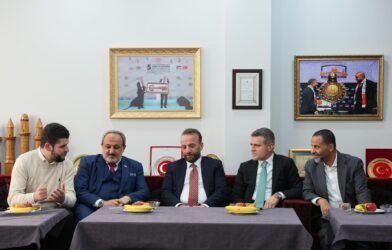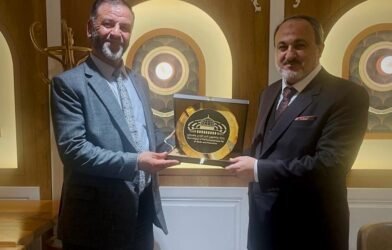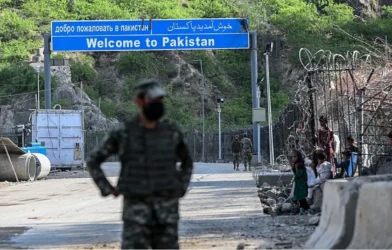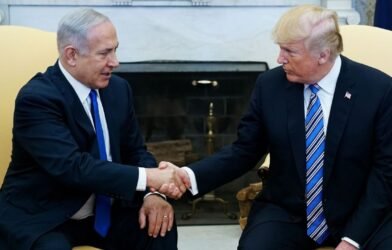Subtotal $0.00
Many in the Muslim world celebrated Mahathir Mohamad's visit to Turkey After a long estrangement between the two countries, following the dispute between them nearly two decades ago, against the backdrop of Mahathir's disagreement with Anwar Ibrahim and the latter's resort to the Turkish embassy in Kuala Lumpur. It seems that President Erdogan's implicit decision was that there would be no reconciliation and real relations without rehabilitating Anwar Ibrahim, which is what happened in the recent Malaysian elections. After Mahathir decided to return to politics, ending the state of retirement that he chose for himself about two decades ago, taking it upon himself to fight the corruption that was rampant in the state apparatus under the rule of Najeeb Abdul RazzaqHis former friend and ally, he visited Anwar during his trial to sympathize with him, entered into a coalition with his party in an election that marked a milestone in the history of democracies, and nominated himself, then 92 years old, as prime minister, according to an agreement Anwar gets out of trouble and return him to politics, giving him the position two years after the beginning of the term (50/50), which has not happened until now despite Mahathir Mohamad's election victory.
Mahathir's legacy
There is no doubt that Mahathir's behavior since the beginning of his political history has tended to strengthen national identity and build economic and social immunity in a multi-ethnic society. Despite the numerical dominance of Malay Muslims, they were disempowered by the Chinese ethnicity, which is numerically smaller and economically superior to them. He made vigorous attempts to develop education and the economy, and urged the Malay people to engage in more influential and important work in building their country, which raised their level and contributed effectively to the country's progress.
On the external level, as a result of his strong personality and great ambition, he did not have an inferiority complex towards the West, like many of his Asian counterparts, so he adopted the "Look East Policy", inspired by the Japanese experience in renaissance, due to its cultural proximity to Malaysia's environment, and tried to create a special Islamic model in which he blended modernity with the basic teachings of Islam as he understood them, producing a modern Muslim society that seeks moderation and prosperity.
The Malaysian prime minister, despite his old age, is very enthusiastic about building a six-party Islamic axis, based on the idea of the late Erbakan. He probably thought that his Turkish counterparts would be equally enthusiastic, but he had to curb his efforts when he presented the idea to the Turkish president
Malaysian enthusiasm, Turkish reservations
It is clear that the Malaysian prime minister, despite his old age, is very enthusiastic about building a six-party Islamic axis, based on the idea of the late Erbakan. It is likely that he thought his Turkish counterparts would be equally enthusiastic, but when he presented the idea to Turkish President Recep Tayyip Erdogan, he had to restrain his efforts, stating only that such an axis At the current stage, it will consist of three countriesMalaysia, Pakistan, and Turkey. It is a limited achievement compared to the original idea, given that the relationship between Turkey and Pakistan is at its highest level, so there is no real addition in this area, but the Malaysian-Turkish relationship could see further improvement after the long period of coolness it has gone through since the mid-1990s, against the backdrop of the elimination of Anwar Ibrahim.
The Turkish lukewarmness in dealing with the idea of Mahathir Mohammed can be attributed to a number of reasons, the most important of which may be related to Mahathir himself and his chance of remaining in power, as Mahathir is often seen as an old man who may leave the political arena at any moment due to death or ill health, so dealing with his projects and partnerships is fraught with risks, especially with his many rivalries and the dangerous environment he has surrounded himself with, which prompts the Turks to wait until Anwar Ibrahim comes to power.
This is at the personal level. At the public level, the countries that Mahathir seeks to include in the supposed alliance are not yet mature and their ability to make independent decisions to ensure the success of the alliance is highly questionable, as they are under tremendous American influence, if we exclude Iran, which has a complicated relationship with both Turkey and Pakistan. This alliance would also mean the end of the "D-8" organization, which was formed by the late Prime Minister Erbakan in Istanbul in 1997 for the same purpose. Although it still plays certain roles, the Turks are not (apparently) willing to write its death certificate with their own hands.
The countries that Mahathir seeks to include in the hypothetical alliance are not yet mature, and their ability to make independent decisions to ensure the success of the alliance is highly questionable
Reasons for the alliance
There are many economic reasons why such an alliance would be desirable, such as exploring new markets in the form of intra-trade between these countries, which have long depended on non-Islamic countries for their economies, as well as reducing the influence of Western financial institutions and their significant impact on Islamic economies. In particular, cultural reasons related to religion play an important role here. As a result of Saudi Arabia's policies, the promotion of a moderate, democratic, modernist Islam as an alternative to Wahhabi militancy and the dilution of Islamic identity has become extremely important for these countries.
Finally, there are the strategic reasons of hardening the Islamic region against the foreign influence that enjoys almost absolute influence in it, through cooperation in the field of military industrialization, achieving self-sufficiency in this field, forming a regional self-protection network, and preparing to face the effects of the future conflict between the major powers, especially the United States and China, on the world. All these and other reasons make Islamic integration in the form of an alliance extremely important, but as is well known, the margin between dream and reality is often wider than the ability of politicians to cross it, even if they are as strong and determined as Mahathir Mohammed.










